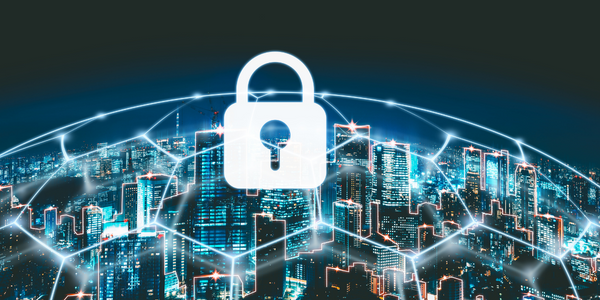Cybersecurity

Cybersecurity refers to the protection practice for the hardware, software, and data from being destroyed, altered or leaked by accidental or malicious reasons to ensure the system runs continuously and the network service is not interrupted. An effective cybersecurity methodology has multiple levels of protection spread across the computers, networks, programs, and data that one intends to remain secure. For an effective defense from cyber-attacks, the people, processes, and technology in any organization should complement one another.The cybersecurity can be divided into physical security and logical security. Physical safety refers to the physical protection of system equipment and related facilities from damage and loss. Logical security includes integrity, confidentiality, and availability of information.
Risk Management and Compliance: Businesses prioritize cybersecurity to mitigate cyber risks, comply with regulatory requirements, and protect against data breaches, cyber attacks, and financial losses. They invest in cybersecurity measures, such as security assessments, risk analysis, and compliance audits, to identify vulnerabilities, assess risks, and implement controls to safeguard data and systems.
Brand Protection and Reputation Management: Cybersecurity is essential for preserving brand reputation, customer trust, and market credibility. Businesses implement cybersecurity measures to prevent data breaches, ransomware attacks, and other cyber incidents that could damage brand reputation, erode customer confidence, and result in financial and reputational losses.
Stakeholders involved in cybersecurity include business owners, executives, IT professionals, employees, customers, regulatory authorities, and industry partners. Here's how different stakeholders perceive cybersecurity:
Business Owners and Executives: Business owners and executives prioritize cybersecurity to protect business continuity, financial assets, and intellectual property. They allocate resources, set cybersecurity priorities, and establish governance structures to ensure that cybersecurity measures align with business objectives, regulatory requirements, and industry best practices.
IT Professionals and Security Teams: IT professionals and security teams are responsible for implementing cybersecurity measures, monitoring security threats, and responding to cyber incidents. They deploy security controls, conduct vulnerability assessments, and manage security operations to detect, prevent, and mitigate cyber threats, ensuring the confidentiality, integrity, and availability of data and systems.
Endpoint Security Solutions: Endpoint security solutions, such as antivirus software, endpoint detection and response (EDR) tools, and mobile device management (MDM) platforms, protect endpoints, including laptops, desktops, and mobile devices, from malware, ransomware, and unauthorized access.
Network Security Controls: Network security controls, such as firewalls, intrusion prevention systems (IPS), and secure web gateways (SWG), monitor and filter network traffic to detect and block malicious activities, unauthorized access attempts, and network-based attacks.
Threat Intelligence and Analysis: Cybersecurity relies on threat intelligence data to identify emerging cyber threats, malware variants, and attack vectors. Threat intelligence feeds, security alerts, and incident reports provide actionable insights into cyber threats, enabling organizations to prioritize security measures, patch vulnerabilities, and respond to cyber incidents effectively.
Security Event Logging and Monitoring: Data logs, audit trails, and security event records provide visibility into system activities, user behavior, and security events, allowing organizations to monitor, analyze, and investigate security incidents. Security information and event management (SIEM) systems aggregate and correlate security data from multiple sources to detect anomalies, identify breaches, and facilitate incident response.
Technology Implementation and Integration: Deployment includes the selection, configuration, and integration of cybersecurity technologies, such as firewalls, intrusion detection systems, encryption tools, and endpoint security solutions. These technologies are deployed across networks, endpoints, and cloud environments to provide layered defense against cyber threats and vulnerabilities.
Policy Development and Training: Deployment involves the development of cybersecurity policies, procedures, and guidelines to establish security standards, roles, and responsibilities within the organization. Employee training, awareness programs, and security awareness campaigns educate users about cybersecurity best practices, data protection measures, and incident reporting protocols to mitigate human error and insider threats.
Case Studies.





